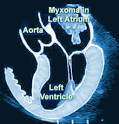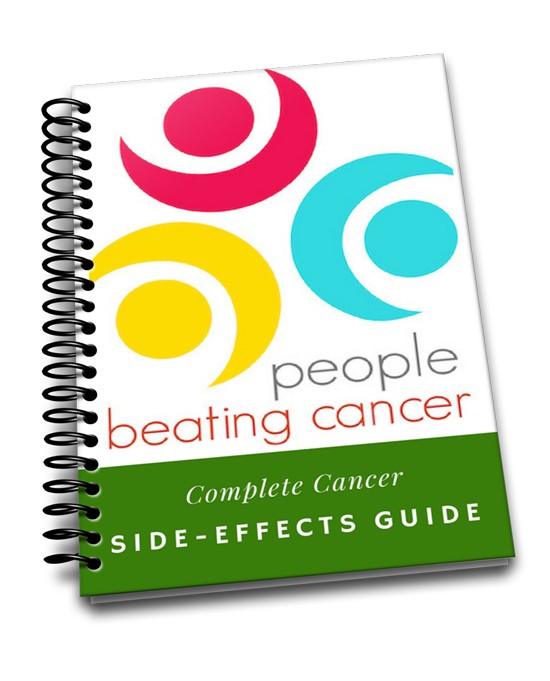Exercise, Nutrition, Sauna and a host of nutritional supplements including nattokinase, taurine, omega-3 fatty acids, and more have proven ability to lower blood pressure.
Last week I was diagnosed with chemotherapy-induced cardiomyopathy. I underwent aggressive chemotherapy, radiation and an autologous stem cell transplant in 1995.
Yes, ’95 was a long time ago but I underwent four different cardio-toxic chemotherapy regimens including:
- Adriamycin
- Cytoxan
- Melphalan
- Busulphan
I didn’t know it at the time but cardiomyopathy can appear years after active chemo administration. This blog post is about non-toxic blood pressure therapies. Other blog posts on PeopleBeatingCancer focus on other aspects of my conventional oncologic care…

The cardiologist wanted me to lower my blood pressure as much as possible. My BP isn’t high but every bit counts when you are talking about cardiomyopathy. Though Dr. Moudgil wrote a prescription for metoprolol we talked about the lowest possible dose and I am going to focus on evidence-based, non-toxic blood pressure therapies before I begin taking metoprolol. Years of managing my cancer has taught me the benefit of combining conventional (FDA approved) and evidence-based, non-conventional therapies.
Do you think you have chemotherapy-induced heart damage? Would you like to learn about non-conventional therapies to reduce your blood pressure, heart rate, improve your ejection-fraction?
Learn more about chemotherapy-induced cardiomyopathy- click now
To Learn More about Chemotherapy-induced Hypertension- click now
Scroll down the page and post a comment or question. I will reply to you ASAP.
Thanks,
David Emerson
- Cancer Survivor
- Cancer Coach
- Director PeopleBeatingCancer
Recommended Reading:
“Conclusion-The data suggest that nattokinase consumption in a North American population is associated with beneficial changes to BP in a hypertensive population, indicating sex-specific mechanisms of action of nattokinase’s effect on vWF and hypertension…”
“The results showed that taurine treatment upregulated the expression of hydrogen sulfide-synthesizing enzymes and reduced agonist-induced vascular reactivity through the inhibition of transient receptor potential channel subtype 3-mediated calcium influx in human and mouse mesenteric arteries. In conclusion, the antihypertensive effect of chronic taurine supplementation shows promise in the treatment of prehypertension through improvement of vascular function...”
“Conclusion:The results of this study indicate that omega-3 reduced BP significantly but had no effect on lipid profile in our CAPD patients.
“The favourable effect of resveratrol emerging from the current meta-analysis suggests the possible use of this nutraceutical as active compound in order to promote cardiovascular health, mostly when used in high daily dose (≥300 mg/day) and in diabetic patients…”
“A meta-analysis of 16 randomized controlled trials
The key finding of this study was that grape seed extract exerted a beneficial impact on blood pressure, and this impact was more obvious in younger or obese subjects, as well as in patients with metabolic disorders. Moreover, study design, randomization, and baseline blood pressure were identified as the possible causes of heterogeneity. As far as we know, this is to date the largest meta-analysis that has evaluated the relationship between grape seed extract treatment and blood pressure changes…
In conclusion, our findings demonstrate that grape seed extract can exert a beneficial impact on blood pressure, and this impact was more obvious in younger or obese subjects, as well in patients with metabolic disorders. In view of above limitations, this meta-analysis emphasizes the need for confirmation of our findings in a large-scale, long-term, multiple-dose randomized controlled trial, especially among hypertensive patients…”
“Studying more than 1,600 middle-aged men in Finland, researchers found that those who took sauna baths four to seven times a week cut their risk of high blood pressure by nearly half, compared to once-a-week sauna bathers…”
Cocoa, Blood Pressure, and Vascular Function
“Cardiovascular disease (CVD) represents the most common cause of death worldwide. The consumption of natural polyphenol-rich foods, and cocoa in particular, has been related to a reduced risk of CVD, including coronary heart disease and stroke.
Intervention studies strongly suggest that cocoa exerts a beneficial impact on cardiovascular health, through the reduction of blood pressure (BP), improvement of vascular function, modulation of lipid and glucose metabolism, and reduction of platelet aggregation.
These potentially beneficial effects have been shown in healthy subjects as well as in patients with risk factors (arterial hypertension, diabetes, and smoking) or established CVD (coronary heart disease or heart failure). Several potential mechanisms are supposed to be responsible for the positive effect of cocoa; among them activation of nitric oxide (NO) synthase, increased bioavailability of NO as well as antioxidant, and anti-inflammatory properties. It is the aim of this review to summarize the findings of cocoa and chocolate on BP and vascular function.”




